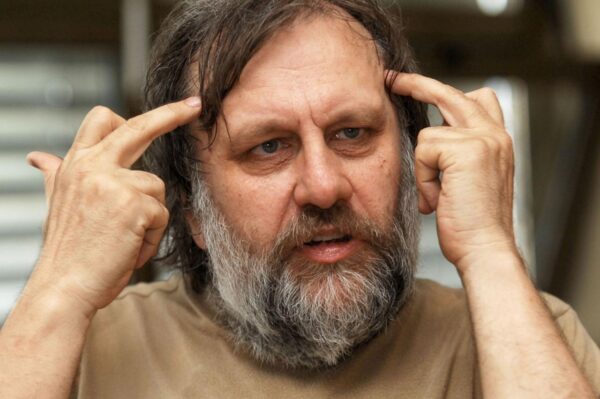 For years, I have fought alongside Julian Assange and for him. When I heard that he was finally free, my first thought was that he was returning to a world that looks – and indeed is – much worse than the one he left behind. Pandemics, wars, and widespread ecological collapse force us to ask a big question: In what sense are we, who breathe fresh air outside prison walls, still free?
For years, I have fought alongside Julian Assange and for him. When I heard that he was finally free, my first thought was that he was returning to a world that looks – and indeed is – much worse than the one he left behind. Pandemics, wars, and widespread ecological collapse force us to ask a big question: In what sense are we, who breathe fresh air outside prison walls, still free?
Written by: Slavoj Žižek for Project Syndicate
Even our works of fiction are getting worse. The new children’s film *Inside Out 2* follows 13-year-old Riley at the beginning of puberty. Her personified emotions – Joy, Sadness, Fear, Anger, Disgust – have created a new section in her mind called “Sense of Self.” Then, four new emotions – Anxiety, Envy, Shame, Boredom – arrive, causing conflict. Joy thinks Riley should just enjoy herself at camp, while Anxiety wants Riley to secure a place on the team and make new friends. Eventually, the first and second generation emotions learn to work together to protect the ever-changing Sense of Self, leaving viewers with a completely false portrayal of the human soul.
In the real world, these inner psychological tensions often escalate into madness. A much better film would depict the emotions of a Palestinian boy in the ruins of Gaza, rather than a girl from a wealthy Los Angeles suburb. Instead of working together to form a stable self, his conflicting emotions would push him towards a psychological breakdown and suicidal acts of violence. Let’s recall G.K. Chesterton’s brilliant description from *Orthodoxy*:
“A soldier surrounded by enemies, if he is to cut his way out, needs to combine a strong desire for living with a strange carelessness about dying. He must not merely cling to life, for then he will be a coward and will not escape. He must not merely wait for death, for then he will be a suicide and will not escape. He must seek his life in a spirit of furious indifference to it; he must desire life like water and yet drink death like wine.”
A recent documentary by Ukrainian director Oleg Sentsov, *Reality*, perfectly illustrates this combination of opposites. After spending several years as a political prisoner in Russia, Sentsov went to fight for the Ukrainian army. The film consists of 90 minutes of GoPro footage shot during moments when he was unaware that his camera was on. Presented as unedited, the film depicts a strange mix of horror and boredom that defines life on the front line.
These dualities run through the entire film. The banal brutality of reality is interspersed with magical moments of what can best be described as meaningless meaning. Sentsov recalls a moment just before filming began in *Reality*: “There was a soldier with the call sign Johnny, a veteran of the war in Afghanistan. He went to evacuate the wounded but was hit. He managed to make one last radio call and simply said: ‘Johnny calling. I am dead.'” It was a moment of authentic metaphysical absurdity.
Many film critics believe that *Reality* depicts war as it truly is. If that were the author’s intention, his film would be just another pacifist anthem to the absurdity of war. Although Sentsov sees the brutal absurdity of the situation, he fundamentally believes that the fight for a just cause must continue. By stripping away all the romance of heroism on the battlefield, *Reality* shows what true courage means: accepting the misery of military combat, not masking it with pathetic fantasies.
This is the message we need now. In the case of Ukraine, pacifism has been used to justify Russian military aggression. Those who oppose Western support for Ukraine say: “You must not resist the occupier because then you will become just like them.” In the Holy Land, the message is similar, but mainstream media coverage is fundamentally different. There is an evident effort to manipulate our perception of what is happening to limit emotional impact. While Israelis were killed in a “massacre,” Palestinians were “found dead.” These forms of “soft” censorship permeate public discourse.
Did you know that a large group of Israeli Jewish intellectuals recently called on all EU member states, the United Kingdom, and other countries to recognize Palestine as a state? Western media barely reported on this brave act. Major events that might disturb the sensibilities of the Western public are either not mentioned or reported only in a brief note at the bottom of the page.
How many people noticed that on June 20, 2024, Israel adopted the de facto annexation of the West Bank, with the Israeli Defense Forces transferring authority to “state officials sympathetic to settlers”? Palestinians will well understand the irony of this move. While military occupation implies a certain distance from Israel, this new dispensation means they are integrated into the Israeli civil order – albeit one dominated by chauvinists who seek to exclude them.
These examples show why we need heroes like Assange. He did what needed to be done and paid a high price for it. The time has come for others to continue the work Assange started. By “work,” I don’t just mean a job but a calling. Assange didn’t set out to start WikiLeaks and expose state secrets to bring some entertainment into his life. He did it because he couldn’t do otherwise. For this reason, I suspect he is a happy man despite all the hardships he has endured.